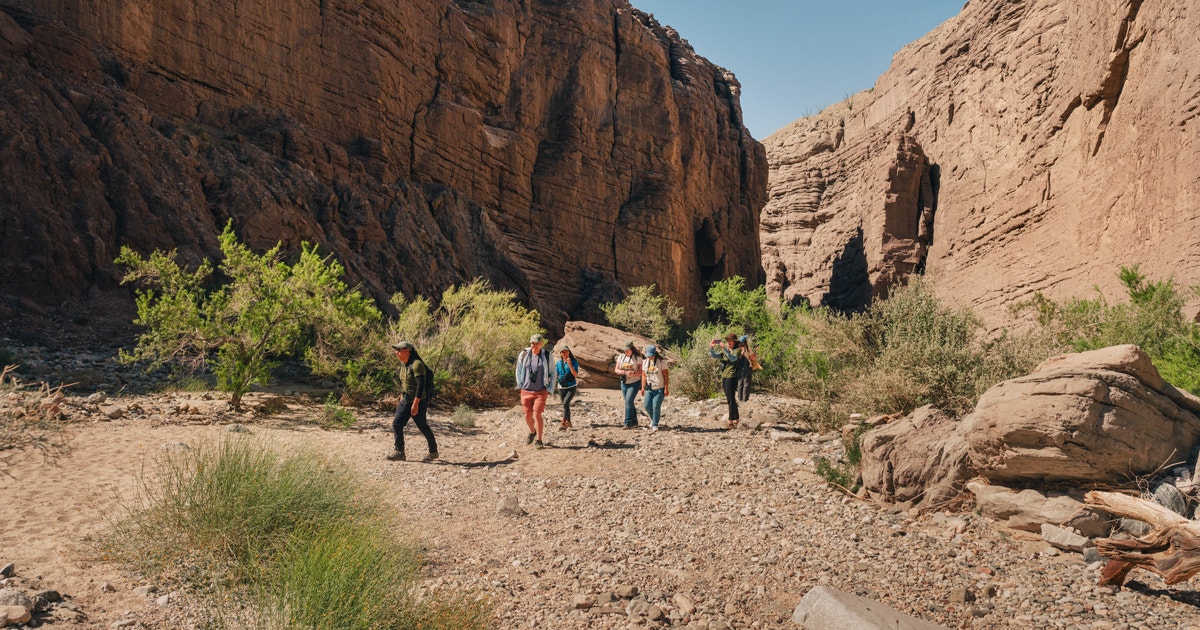WASHINGTON, D.C. (January 7, 2025) – The National Audubon Society today celebrated the designation of more than 624,000 acres of California desert as the Chuckwalla National Monument, public lands just south of Joshua Tree National Park in southeast California.
“We are grateful that the administration has heeded the call of thousands of Californians to protect our fragile deserts,” said Dr. Elizabeth Gray, CEO of the National Audubon Society. “This historic designation of the Chuckwalla National Monument not only ensures the preservation of the area’s rich biodiversity but also provides a critical sanctuary in addressing the climate crisis and supports the livelihoods of underserved communities. The expansion of protected areas underscores our commitment to collaborative habitat conservation, emphasizing partnerships with Indigenous peoples and local communities. We deeply appreciate the dedication of the administration and California’s congressional leadership in conserving these irreplaceable lands.”
Located at the junction of the Mojave, Sonoran and Colorado Deserts, the Chuckwalla region is home to astonishing biodiversity, including birds like the Phainopepla, Western Tanager, Verdin, Cactus Wren and Greater Roadrunner — along with bighorn sheep, desert tortoises, American badgers, desert pupfish, and other imperiled wildlife. Along with vital habitat, the designation protects sites of national historic significance, and landscapes deeply sacred to the Cahuilla, Chemehuevi, Mojave, Quechan, and Serrano Nations, and other Indigenous peoples. Senators Alex Padilla and Laphonza Butler (both D-CA) and Congressman Raúl Ruiz (D-CA-25) also introduced legislation last May to establish a Chuckwalla national monument.
“Anyone who’s hiked the slot canyons and hills of this magnificent area knows that this is a place worth protecting, and we’re immensely gratified that this area has been recognized for its significant natural and cultural value,” said Andrea Jones, interim executive director of Audubon California and senior director of conservation. “Today’s designation creates a bulwark against a warming climate for at-risk birds and other desert wildlife species, advances needed outdoor recreation areas for local communities, and preserves precious cultural resources of Indigenous nations.”
Audubon California championed the drive for the declaration together with members of the Protect California Deserts Coalition, working alongside coalition members and Tribal interests for years to drive grassroots and political support. In addition, over 55,000 Audubon supporters took action for the designation, sending letters and signing petitions. Audubon also partnered with the solar energy and transmission industries to help align the national monument declaration with the responsible siting and location of renewable energy development.
“Through our on-the-ground outreach efforts over the past few years, we’ve talked to thousands of people who are excited to learn about these natural wonders right in their backyards,” said Rhian Reyes, campaign organizer for Audubon California’s Deserts and Salton Sea Program. “We know that this is an investment in our communities’ future – protecting a unique and resilient ecosystem, expanding access to the outdoors, and acknowledging its special past.”
About Audubon
The National Audubon Society protects birds and the places they need, today and tomorrow. Audubon works throughout the Americas using science, advocacy, education, and on-the-ground conservation. State programs, nature centers, chapters, and partners give Audubon an unparalleled wingspan that reaches millions of people each year to inform, inspire, and unite diverse communities in conservation action. A nonprofit conservation organization since 1905, Audubon believes in a world in which people and wildlife thrive. Learn more at www.audubon.org and on Facebook, Twitter and Instagram @audubonsociety.
Audubon California is a state office of the National Audubon Society. Learn more about Audubon California at ca.audubon.org and on Facebook, Twitter and Instagram @audubonCA.
Media contacts:
Shineh Rhee, Audubon California, [email protected]; 415.644.4605
Robyn Shepherd, National Audubon Society, [email protected]

